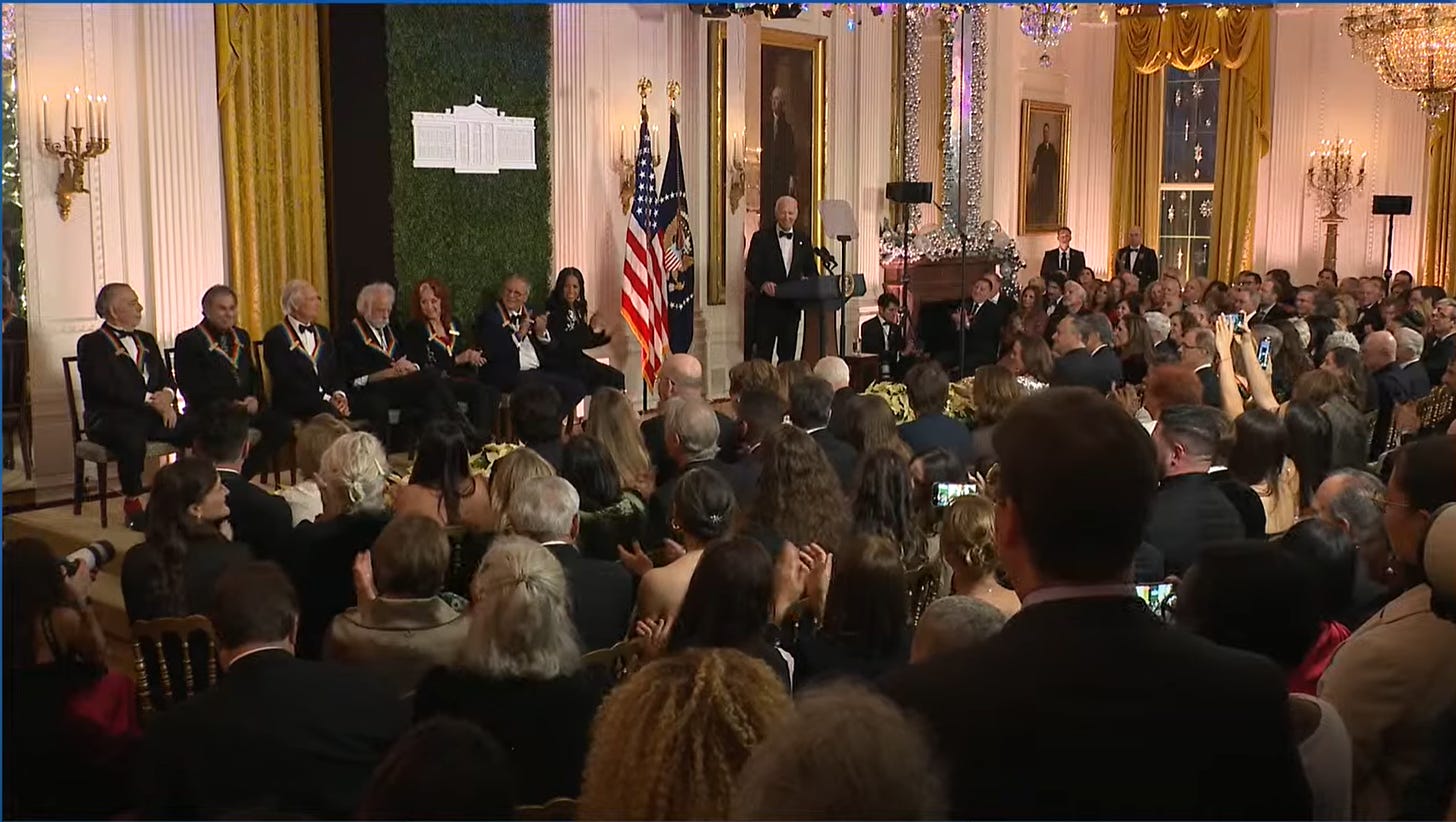President Biden announced the fall of Syrian President Bashar al-Assad's regime, marking a historic moment of justice and opportunity for the Syrian people after decades of authoritarian rule and years of civil war. Assad, who brutalized and oppressed his people, has fled the country, leaving Syrians with the chance to rebuild and forge a new future. However, Biden acknowledged this transition's risks and uncertainties and outlined the United States' commitment to supporting Syria and its neighbors through this critical period.
The collapse of the Assad regime was made possible by the weakening of its primary backers: Iran, Hezbollah, and Russia. Iran’s resources were diverted after its involvement in a multi-front conflict with Israel, while Russia’s military failures in Ukraine diminished its ability to support Assad. This shift in the balance of power, driven by U.S. support for Ukraine and Israel, played a crucial role in isolating the Assad regime.
President Biden detailed the U.S. approach to Syria over the past four years, emphasizing sanctions on Assad and his allies, military action to counter ISIS, and support for Israel's security operations against Iranian networks in Syria. Looking ahead, the U.S. will maintain its military presence in Syria to prevent ISIS from regaining strength, provide humanitarian aid to help rebuild the country and collaborate with the United Nations to support a transition to a democratic, sovereign Syrian government.
Biden acknowledged the challenges ahead, particularly in ensuring that opposition groups respect democratic principles, human rights, and minority protections. He emphasized vigilance in monitoring these groups and ensuring no new tyrant replaces the fallen regime. Additionally, the President reaffirmed his administration's commitment to locating and rescuing Austin Tice, an American journalist held captive in Syria for over a decade.
In closing, President Biden highlighted this as a pivotal moment for Syria and the Middle East, offering a rare opportunity for a more stable, secure, and prosperous region. He called on all stakeholders to seize this chance to build a brighter future while remaining steadfast in their commitments to justice, democracy, and the rule of law.
President Biden reaffirmed his commitment to protecting Americans, emphasizing his administration's efforts to combat the opioid epidemic both domestically and through international partnerships. He highlighted a significant achievement this week, where Mexican security forces seized over 20 million doses of illicit fentanyl—enough to harm 15% of the U.S. population. Biden credited this success to the leadership of Mexican President Claudia Sheinbaum and the dedicated work of military and law enforcement officials from both nations.
Under his administration, the U.S. has seized more fentanyl at the border in the last two years than in the previous five combined. It has brought numerous cartel leaders and money launderers to justice. Additionally, the nation has seen a record 14% decrease in overdose deaths. Biden underscored that these statistics represent lives saved and families spared from the pain of losing loved ones. Looking ahead, he vowed to intensify efforts with international partners to seize more drugs, stop traffickers, and save lives, declaring that the fight against the opioid crisis will continue with unwavering determination.
First Lady Dr. Jill Biden addressed the 2024 Doha Forum in Qatar, emphasizing global cooperation and innovation themes. She expressed gratitude for Qatar’s leadership's hospitality and highlighted the country’s role in education and global health advancements. During her visit to the Qatar Foundation and Weill Cornell Medicine, she observed groundbreaking research, including studies on ovarian cancer risks and surgical innovations, underscoring the power of international collaboration in advancing healthcare.
The First Lady stressed the importance of storytelling to foster connection and inspire positive change. She described the "innovation imperative" as requiring cooperation across backgrounds, sectors, and nations to tackle shared challenges like climate change, health disparities, and global crises. She also called for more focus on women’s health research, noting the global health gap and the potential for groundbreaking discoveries in areas like endometriosis and Alzheimer’s.
In her final foreign trip as First Lady, she reaffirmed her commitment to bridging divides and promoting partnerships to improve health, opportunity, and prosperity worldwide. She encouraged leaders to embrace collaboration and innovation, framing it as an opportunity to create a brighter future.
The United States and Bahrain have launched the Geospatial Acceleration Initiative as part of the advanced technology track under the Comprehensive Security Integration and Prosperity Agreement (C-SIPA), signed in 2023. This initiative builds on the longstanding strategic partnership between the two nations and focuses on advancing defense, security, and cutting-edge technology. Bahrain has demonstrated its commitment to regional security through its leadership in multinational efforts to ensure safe navigation in the Red Sea and Gulf of Aden, countering threats to maritime trade and upholding international law.
Under this initiative, the U.S. National Geospatial-Intelligence Agency (NGA) will work closely with Bahraini stakeholders to develop and share hydrographic, aeronautical, and topographic geospatial data. These efforts aim to enhance navigation safety for military operations and strengthen regional maritime security. The Geospatial Acceleration Initiative reaffirms the deep trust and shared goals between the U.S. and Bahrain, highlighting the power of collaboration to address global challenges. By leveraging innovation and unity, this partnership continues to serve as a cornerstone for peace, security, and prosperity in the region and beyond.
President Biden welcomed guests to the White House to honor the 2023 Kennedy Center honorees, emphasizing the transformative power of art in shaping culture, preserving history, and connecting generations. He celebrated the arts as a reflection of American values and a testament to freedom of expression. The honorees included Francis Ford Coppola, who was recognized for his groundbreaking work in cinema with films like The Godfather and Apocalypse Now and The Grateful Dead, whose music transcended 1960s counterculture to become timeless. Bonnie Raitt was praised for her soulful blend of genres and lasting impact on music. At the same time, Arturo Sandoval was honored as a jazz legend and an immigrant whose journey from Cuba exemplifies the American dream. The Apollo Theater, the first institution to receive the Kennedy Center honor, was celebrated for its legacy of showcasing Black talent and shaping American culture.
President Biden shared personal reflections in his remarks, including anecdotes about his and First Lady Jill Biden’s experiences. He mentioned Jill’s advocacy work for women’s health and his recent visit to Angola, where he explored its deep historical connections to African American ancestry. Biden highlighted the importance of preserving history in its entirety, criticizing efforts to erase it and stressing the role of the arts in addressing social issues and fostering equality.
Concluding his remarks, President Biden expressed deep gratitude for the honorees’ contributions to the arts and their enduring impact on the nation’s soul. He looked forward to the evening’s performances and acknowledged the Kennedy Center for its commitment to celebrating creativity and honoring those who inspire generations.
President Biden hosts Kennedy Center honorees at The White House






Than you. I forwarded this to all my friends 😊🙏